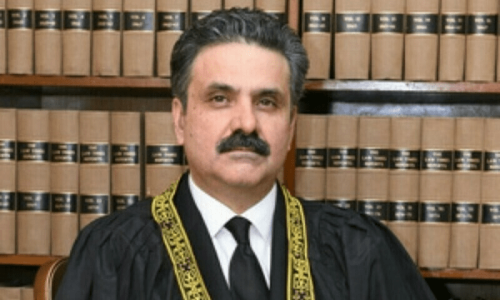IN his first public comments since the Uri attack, Prime Minister Narendra Modi has threatened a policy of working to “isolate” Pakistan internationally — a statement that has been interpreted both as a climbdown from post-Uri war rhetoric and a veiled threat by the Indian leader. At the very least, it suggests a degree of policy confusion in India that can have a dangerously destabilising effect in the region. More than a week removed from the Uri attack, it should now be apparent to many in India that their government erred in its response. Even before the attack was over, a campaign of vilification against Pakistan began and threats of war were issued. The more sensible course was both apparent and immediately rejected: gathering evidence; presenting Pakistan with the results of a preliminary inquiry; and seeking this country’s cooperation in tamping down cross-LoC militant movement, if an increase was, in fact, discernible.
Admittedly, the sensible approach may have seemed unsatisfactory given the relatively recent history. The Mumbai attacks-related trials in Rawalpindi have stalled for years now, while the Pathankot investigation also appears to be going nowhere. In addition, nationalist forces unleashed in India, by its media generally and, more recently, by the Modi government, have probably reduced the space for sensible responses. But provocative as the Uri attack may have been, a frank assessment demands that it not be placed in the same category as the Mumbai attacks. An attack on security forces in the disputed Kashmir region that may have involved militants crossing the Line of Control at a time of great unrest in India-held Kashmir is very different from indiscriminate attacks on civilians in a major Indian city by militants who crossed the international border, whether by land or sea, to inflict pain on India at a time of ceasefire between the two countries in the disputed Kashmir region. That is also why, even now, nearly a decade after the Mumbai attacks, the inability of the state here to conclude the Mumbai attacks-related trials is a signal failure.
As Mr Modi himself alluded to on Saturday, the great challenge of India and Pakistan is to put the development agenda consistently at the centre of all that the two states do with regard to their own people and the region generally. Economic advancement is something that all power centres and institutions in the two countries agree upon, even if they disagree about the extent to which economic interconnectedness between India and Pakistan is desirable. But where talk of policies of isolation can raise hackles, policies of concentrating on economic growth can help defuse tensions. It may not quite have amounted to an olive branch, but Pakistan should consider ways to hold Mr Modi to his word.
Published in Dawn, September 26th, 2016










































